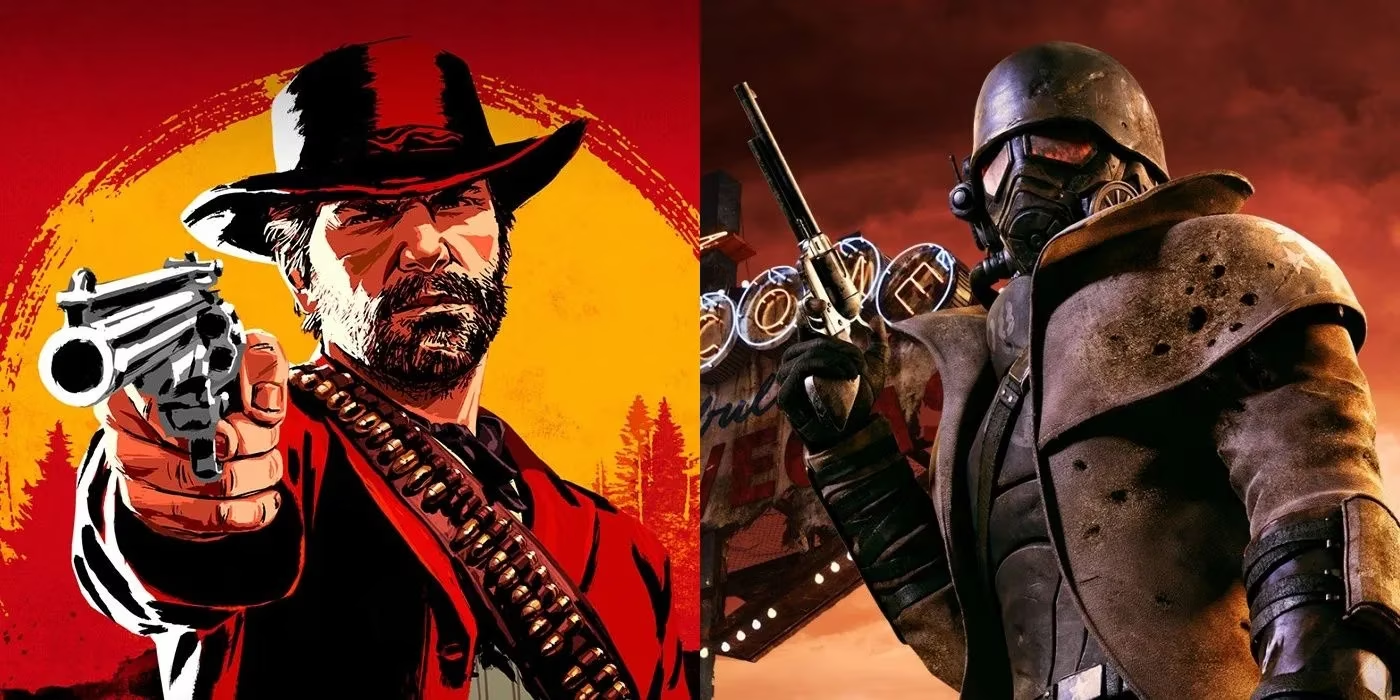The Illusion of Freedom: Red Dead Redemption 2 vs. Fallout: New Vegas in 2025
Explore the clash between restrictive mission design in Red Dead Redemption 2 and the unparalleled player freedom in Fallout: New Vegas, shaping the future of open-world gaming.
Four years after the infamous Reddit meme first circulated, the gaming community still debates the concept of true player freedom in open-world games. The comparison between Rockstar's meticulously crafted but restrictive Red Dead Redemption 2 and Obsidian's chaotically permissive Fallout: New Vegas continues to resonate with players seeking authentic agency in virtual worlds.
The Golden Path Problem
In the vast, breathtaking wilderness of Red Dead Redemption 2, Arthur Morgan's journey remains one of the most visually stunning and emotionally resonant gaming experiences to date. Yet the game's mission structure continues to be its Achilles' heel. Players who venture even slightly off the prescribed path—that infamous yellow line on the mini-map—are met with the dreaded 'Mission Failed' screen. This rigidity creates a jarring disconnect between the free-roaming exploration of the open world and the strictly choreographed story missions.
"It's like Rockstar built this incredible playground but then puts up 'Do Not Touch' signs everywhere during the important parts," noted veteran game designer Emma Rodriguez in her 2024 GDC talk on open-world design philosophy. "The player is simultaneously told 'this world is yours to explore' and 'do exactly as we say or fail.'"

The New Vegas Approach
Conversely, Fallout: New Vegas—despite being released in 2010—still stands as a testament to player agency. The game famously allows players to murder essential NPCs, take wildly different approaches to quests, and even cannibalize their victims if they so choose. This level of freedom, while sometimes leading to logical inconsistencies, creates a sense that the player's choices genuinely matter.
The game's recent 15th Anniversary Edition, released in 2025 with enhanced graphics and additional content, has only reinforced its reputation as the gold standard for player choice in open-world RPGs. The remaster includes previously cut content that expands player freedom even further, allowing for more nuanced faction interactions and quest resolutions.
The Technological Constraints
What many players fail to recognize is that these design philosophies stem from fundamentally different approaches to storytelling. Rockstar's cinematic ambitions require precise player positioning and timing to deliver their meticulously crafted narrative moments. Obsidian's systems-based approach prioritizes player agency over narrative consistency.
The hardware limitations of previous generations certainly played a role in these constraints. As James Montgomery, lead systems designer at Rockstar, admitted in a rare 2024 interview: "When developing RDR2, we had to make difficult choices between visual fidelity, world density, and systemic freedom. Something had to give."
The Future of Player Freedom
The release of next-generation consoles and advanced AI systems in recent years has begun to bridge this gap. Games like Starfield's Shattered Space expansion and the upcoming Grand Theft Auto VI have promised more dynamic mission structures that adapt to player choices rather than failing them outright.
Perhaps most exciting is the rise of procedurally generated narrative content. The 2024 indie hit "Emergent Frontiers" demonstrated how machine learning algorithms could create coherent story consequences for even the most unexpected player actions, suggesting a future where the strict dichotomy between Rockstar's cinematic control and Obsidian's chaotic freedom might finally dissolve.
The Philosophical Question
At its core, this debate touches on a philosophical question: what constitutes true freedom in a virtual world? Is it the ability to do anything, regardless of consequences? Or is it meaningful choice within a coherent narrative framework?
I personally believe the future lies somewhere in between. The most satisfying games will likely combine Rockstar's attention to detail and production values with Obsidian's respect for player agency. Imagine a world as beautiful and immersive as Red Dead Redemption 2, but where creative solutions are rewarded rather than punished, and where the narrative adapts to player choices instead of forcing them down a predetermined path.
The Player's Verdict
As we look ahead to 2026 and beyond, it's worth remembering that no open-world game is perfect. They all contain logical inconsistencies and design compromises. Even Fallout: New Vegas, for all its freedom, has its share of quirks—like how stealing items from people you've killed still counts as theft, or how killing a faction member somehow affects your karma even when no witnesses exist.
Perhaps the perfect open-world game is an impossible dream. But that hasn't stopped millions of players from spending countless hours in these virtual worlds, seeking that elusive feeling of true freedom that only video games can provide.
As Arthur Morgan himself might say, it's not about the destination, but the journey. And whether that journey follows a yellow line or carves its own path through the wilderness, the joy of exploration remains at the heart of what makes open-world games special.
The Community Response
The gaming community's response to this ongoing debate has evolved over time. What began as simple memes has developed into thoughtful discussions about game design philosophy. Forums, Discord servers, and social media groups dedicated to open-world game design analysis have flourished in recent years.
The annual "Freedom in Gaming" awards, now in their third year, even include categories like "Most Creative Mission Design" and "Best Systemic Interactions" that directly address these issues. Notably, both Red Dead Redemption 2 and Fallout: New Vegas continue to be nominated in various legacy categories, showing their enduring influence on the medium.
As we look ahead to the next generation of open-world games, one thing is certain: the conversation about player freedom isn't going away anytime soon. And that's a good thing—because it's through these discussions that the medium continues to evolve and improve.
🎮 🤠 🎲 🏜️ 💥